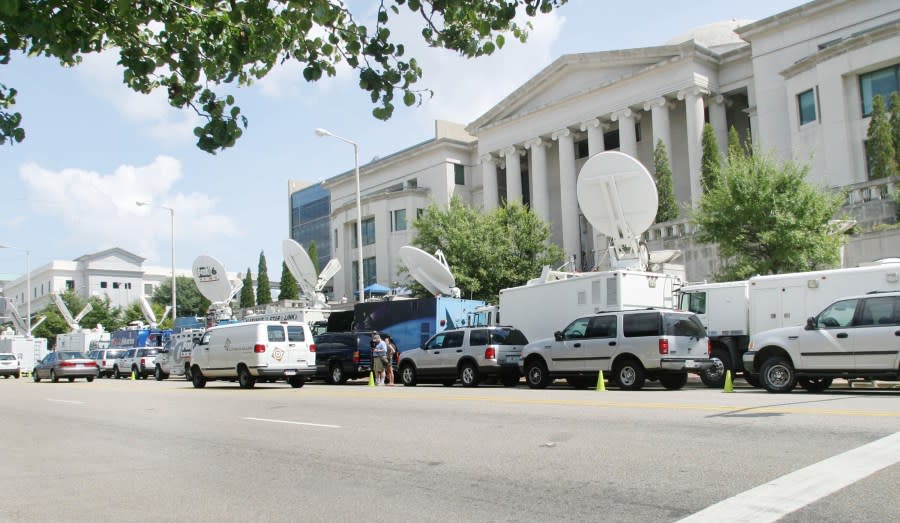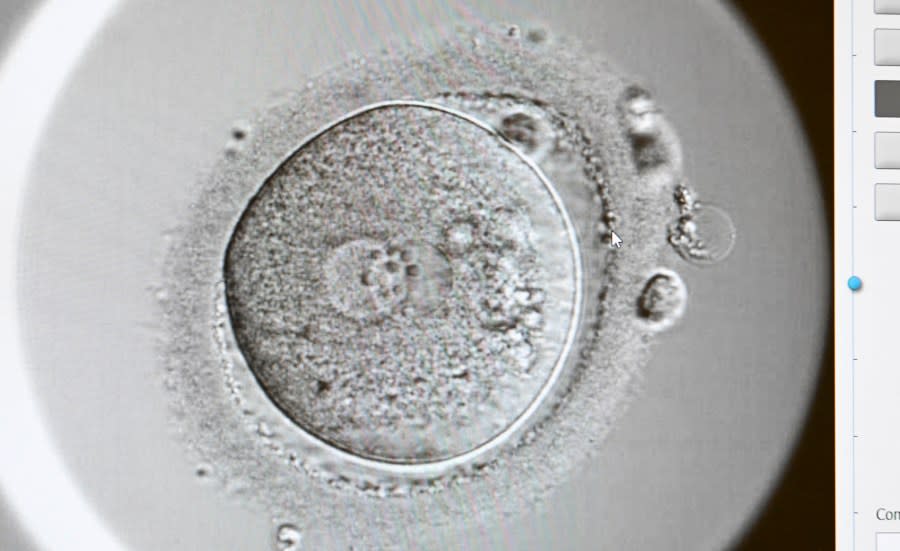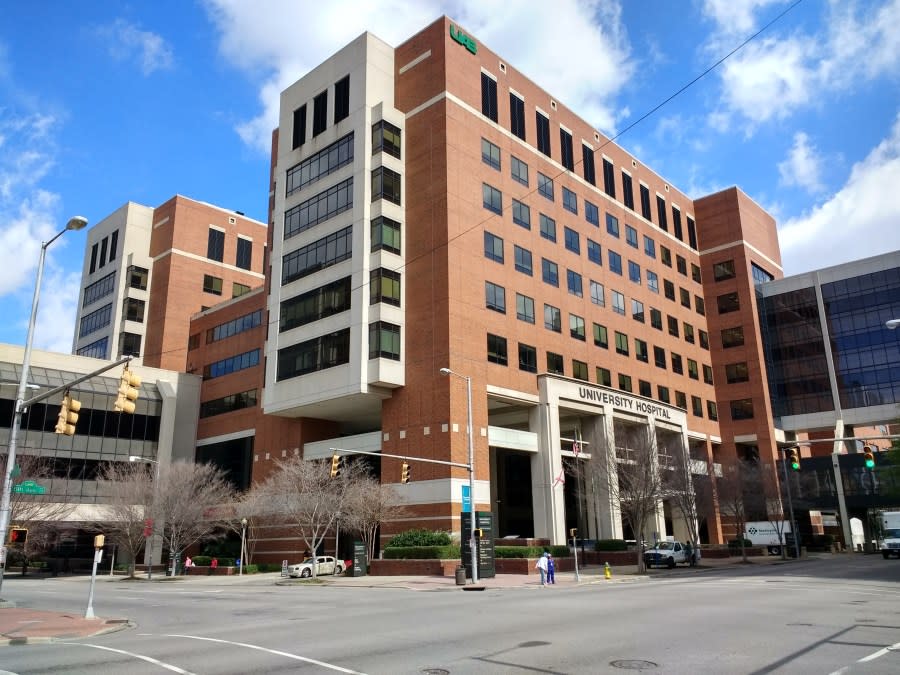‘Are frozen embryos alive?’ The Mobile case that led to an Alabama Supreme Court decision

UPDATE (3:15 p.m.): We have updated this article to include President Joe Biden’s comments on the Alabama Supreme Court decision.
UPDATE (11:40 a.m.): News 5 is contacting area fertility clinics to learn how the Alabama Supreme Court ruling has affected IVF procedures. Here’s the latest information.
MOBILE, Ala. (WKRG) — The Alabama Supreme Court has weighed in on one of the most debated questions: are frozen embryos alive?
Shooting suspect surrenders to Mobile police: MPD
The court on Monday stated that frozen embryos are children.
Since then, the case has made national headlines, sparked passionate discussion on “The View,” and inspired many opinion pieces in newspapers across the country.
But did you know that the ruling stems from an incident that took place right here in Mobile, Alabama?
Here’s a look back at the events that led to a national debate hinging on fertility, abortion and fetal rights.
Dog with a box stuck on his head for months is free at last

The 2021 lawsuit that started it all
On Dec. 20, 2020, a patient at Mobile Infirmary reportedly left their hospital room and wandered to the Center for Reproductive Medicine’s fertility clinic and embryology laboratory. This is where embryos are cryogenically preserved.
The patient then allegedly removed five embryos and was burned by subzero temperatures, causing them to drop the embryos.
The next year, three couples filed a civil wrongful death lawsuit against Mobile Infirmary Medical Center and the Center for Reproductive Medicine.
According to the complaint in a 2021 lawsuit, the laboratory “had been negligently left unlocked and unmonitored” and the embryos “slowly died.”
But did they?
From a legal perspective, anyway, that would be up to the courts.
Woman’s ex-boyfriend kicks in apartment door; woman shoots him: Mobile Police

Path to the Alabama Supreme Court
Both lawsuits cited a judge’s concurring opinion in a 2016 Alabama case, Stinnett v. Kennedy.
In that ruling, which stated that “a zygote or embryo is the beginning of a new human life,” Justice Tom Parker said, “This court again reaffirms the principle that Alabama’s wrongful-death statute protects unborn children from the moment life begins at conception.”
Despite this, on April 13, 2022, a judge dismissed the lawsuit and said Mobile Infirmary and the Center for Reproductive Medicine were not at fault for killing the couples’ frozen embryos.
However, the Alabama Supreme Court’s Feb. 19, 2024, ruling changed everything.
It said that, under state law, frozen embryos are children and are “subject to legislation dealing with the wrongful death of minors,” according to reporting from The Hill.
The ruling received eight out of nine Supreme Court Justices’ support, and that means the couples can proceed with the wrongful death lawsuits.
Michael Upchurch, a lawyer representing the fertility clinic, said they are “evaluating the consequences of the decision and have no further comment at this time,” the AP reports.
Train hits 18-wheeler filled with bananas in Gulfport

Public debate on IVF treatments, abortion rights
Since the Alabama Supreme Court’s decision, people have raced to their keyboards and touch screens to ask questions like: “Are frozen embryos alive?”
That phrase has received “Breakout” status, according to Google Trends, which tracks popular search terms. This means searches have skyrocketed 5,000%.
Many public figures have weighed in on the debate.
President Joe Biden, on Thursday, stated on X, formerly Twitter: “A court in Alabama has put access to some fertility treatments at risk for families desperately trying to get pregnant.
“The disregard for women’s ability to make these decisions is outrageous. (Vice President Kamala Harris) and I won’t stop fighting until we restore the protections of Roe v. Wade.”
Republican presidential candidate and former UN Ambassador Nikki Haley said, “I mean, embryos, to me, are babies,” in an NBC News interview.
Hosts of ABC’s “The View” debated whether the ruling could hamper fertility treatments such as in vitro fertilization and abortion rights.
“They’re calling it a minor. A full-blown minor,” co-host Sara Haines said. “Not an embryo, not a fetus —”
“Well it’s an unborn child,” co-host Sunny Hostin, a practicing Catholic, said, drawing disagreement from Haines, who is pro-choice.
And Katie O’Connor, director of federal abortion policy at the National Women’s Law Center, said the ruling could chip away at abortion rights.
“We’re likely to see conservative states and other conservative supreme courts adopting wholesale the same arguments that were made by the activists behind the decision in Alabama,” O’Connor said, as reported in The Hill.
“Right now, we have a system where abortion is completely banned in 12 states. My fear is that this will be the case for IVF and other fertility care moving forward as well.”

Impact on Alabama fertility clinics
The big — arguably politically charged — question, “Are frozen embryos alive?” won’t receive unanimous agreement anytime soon.
At least, not in the political arena.
But the effect of Monday’s ruling is evident.
The University of Alabama at Birmingham health system said it would pause all IVF treatments, fearing lawsuits and criminal prosecution.
“We are saddened that this will impact our patients’ attempt to have a baby through IVF, but we must evaluate the potential that our patients and our physicians could be prosecuted criminally or face punitive damages for following the standard of care for IVF treatments,” the hospital said in a written statement.
“We want to reiterate that it is IVF treatment that is paused. Everything through egg retrieval remains in place. Egg fertilization and embryo development is paused.”
Meanwhile, USA Health in Mobile does not provide IVF services, a spokesperson tells News 5.
As for Mobile Infirmary and the Center for Reproductive Medicine, they will pause IVF procedures after the Alabama Supreme Court decision.
Mark Nix, president and chief executive officer of Infirmary Health stated, “The recent Alabama
Supreme Court decision has sadly left us with no choice but to pause IVF treatments for
patients.
“We understand the burden this places on deserving families who want to bring babies
into this world and who have no alternative options for conceiving.”
News 5 is contacting other area fertility clinics to learn if they’ve made decisions about health care services due to the Supreme Court ruling.
We will update this article as we learn more information.
For the latest news, weather, sports, and streaming video, head to WKRG News 5.

